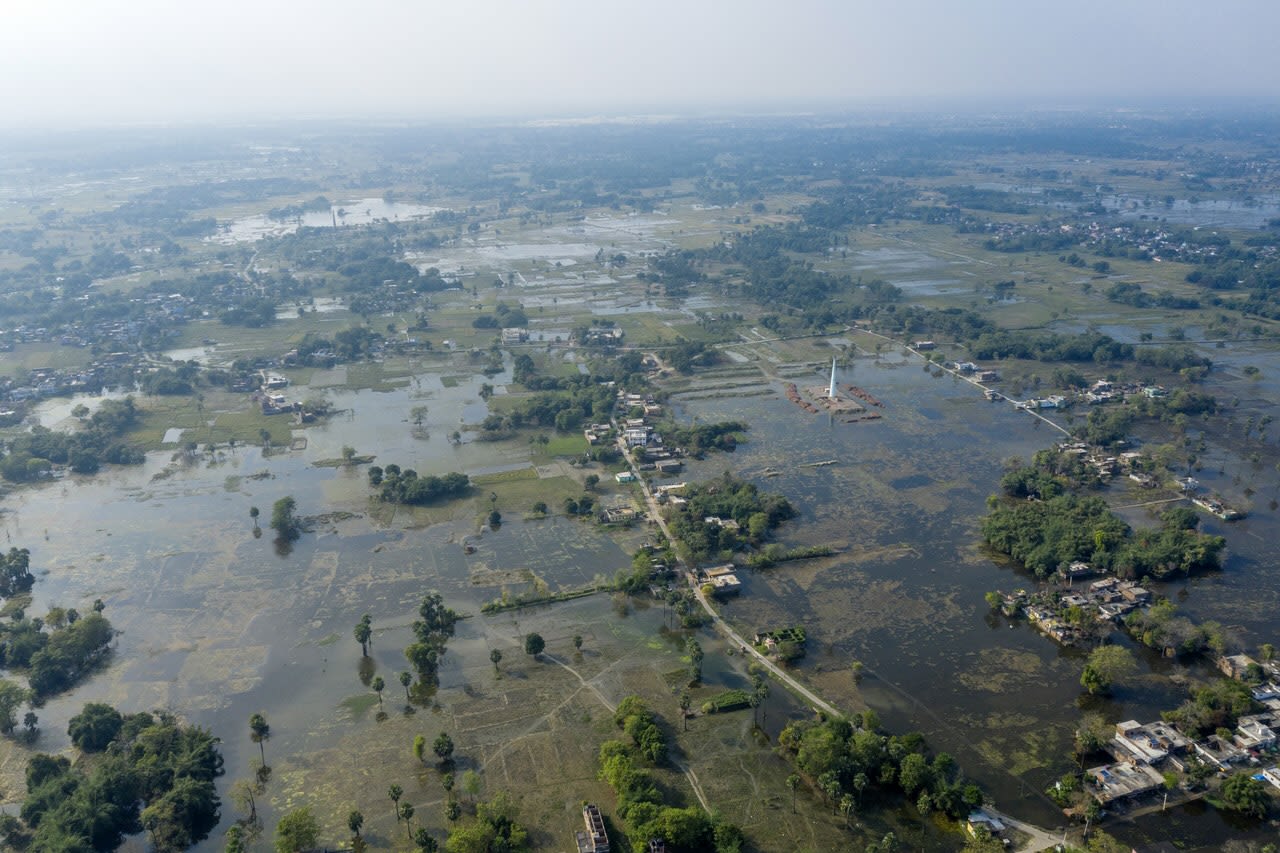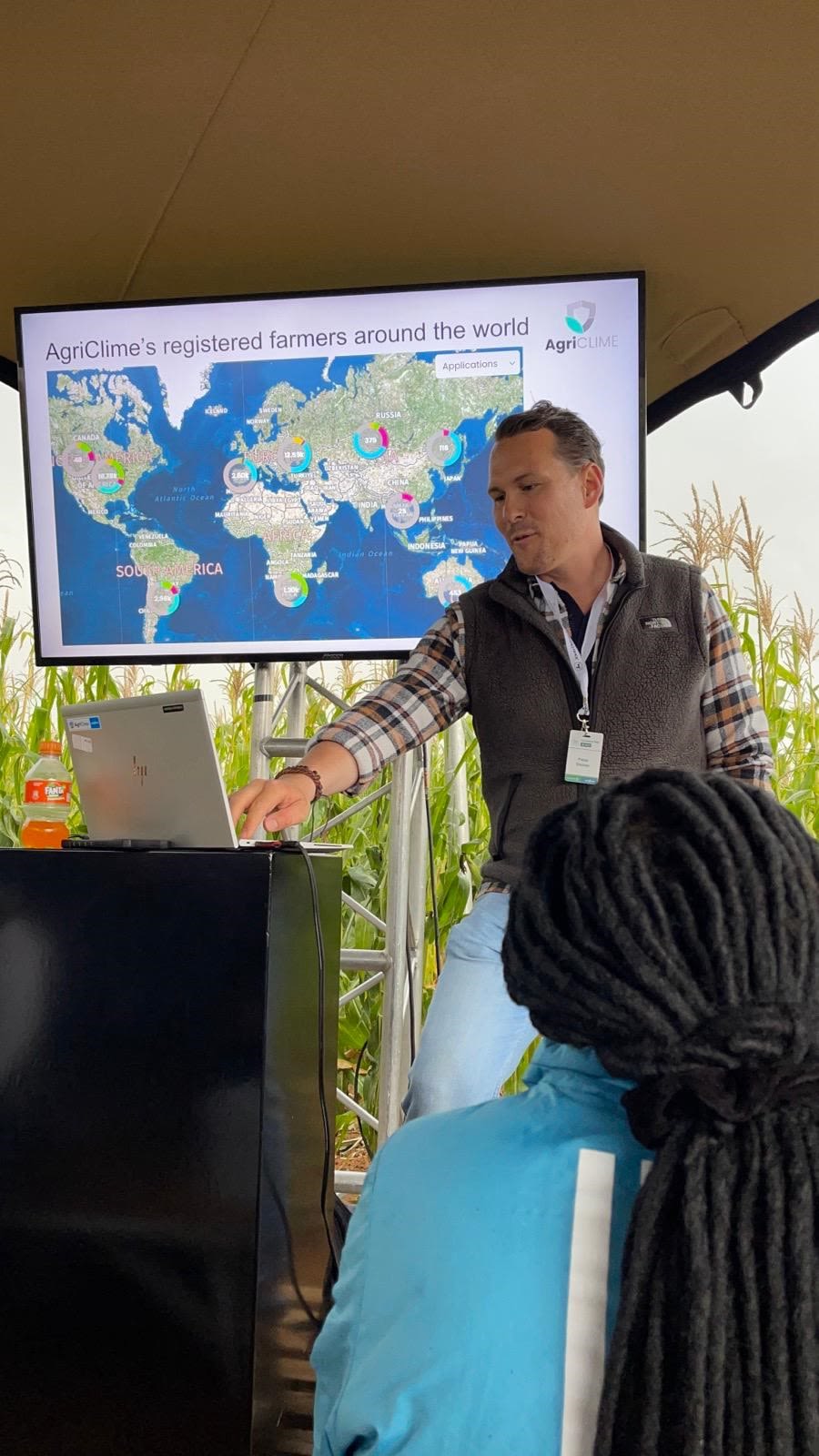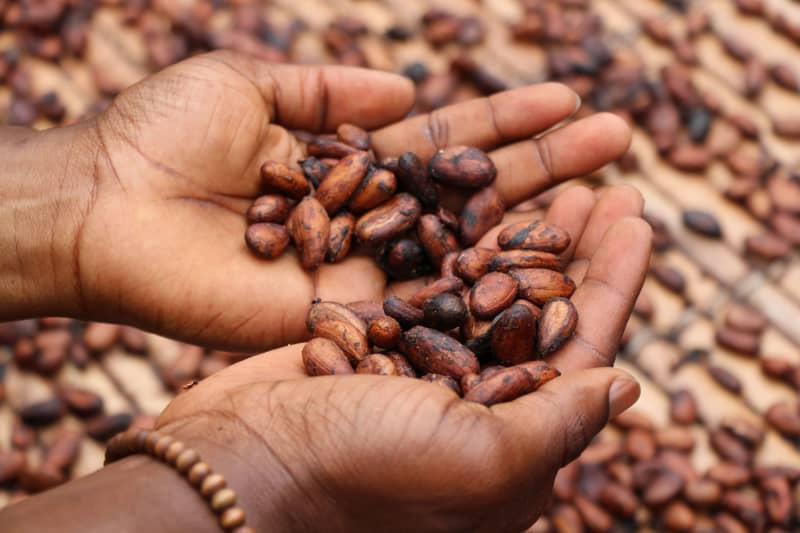Risky business
The real cost of farming

Farming is year-round work and as unrelenting as the weather that growers toil in from dawn till dusk.
Rain or shine, farmers are out in their fields, working to feed their families, put their kids through school, build their homes and, hopefully, squirrel away enough savings to take a day or two off.
But when these weary farmers kick off their boots at the end of the day, their minds are still racing: accounts need settling and bills must be paid.
Farming is the economic lifeblood of millions of people. And those people have millions of small decisions to make to keep their businesses afloat. Those challenges can seem insurmountable, especially when Mother Nature has thrown everything at them, from scorching heat and sideways rain, to stinging sleet and arctic winds.
But what if, in the wake of whatever deck of cards Mother Nature has thrown at farmers this season, they could receive financial reassurance in lieu of their lost earnings and crops? Welcome to AgriClime.
Helping farmers to help themselves
AgriClime is a simple concept. Essentially, it’s a service that is bundled with Syngenta products, such as seeds or crop protection tools, that pledges a cash refund if certain conditions are met.
If the weather is particularly unpredictable, farmers can receive up to the full amount of their purchase back, depending on which country they are in.
This was especially helpful for UK Syngenta customers last season, when 99 percent of hybrid barley clients received payouts.
For farmers going through tough times, this money goes a long way in recouping their costs and financing the replanting of spring crops.
Peter Steiner, Head of Weather Risk Management at Syngenta, says AgriClime provides a crucial economic buffer. For many farmers, this amounts to increased confidence and security.
“Even if their entire crop is lost in bad weather, that money can offer some certainty,” he says. “It can soften the blow.”
In the UK alone, extreme weather meant that the 18 months up until March 2024 were the wettest since records began. So much rain fell (nearly 1,700mm bucketed down) that entire fields were left underwater. The dry periods, the windows in which farmers plant their crops, never arrived and some crops never made it to the field.
As British farmers prepare for another wet winter, Steiner and his small team of five are currently working through adverse weather payouts.
Peter Steiner, Head of Weather Risk Management, Syngenta.
Peter Steiner, Head of Weather Risk Management, Syngenta.
Peter Steiner, Head of Weather Risk Management, Syngenta.
Peter Steiner, Head of Weather Risk Management, Syngenta.
The nitty-gritty
The way it operates is this: Syngenta works with a pool of risk-takers, paying a premium to those who take on the risk, promising a payout if certain meteorological measures are met.
That’s the economics part. But as Steiner explains, the success is down to more than the potential cashback.
The service is tailored to each region. Predictive weather models guide growers on what crops might be best suited for their land and what products could help them to flourish.
“That builds on just the active ingredients in the products themselves,” Steiner says.
“Having the performance guarantee around predictable weather patterns that we expect to happen for these chemicals to be activated and to provide this increase in yield for farmers.”
And that helps farmers to futureproof their crops and planting methods, drawing from the latest data that guides their decisions on what, when and where to plant.
“At the end of the day, what we are trying to achieve is to maximize yields by minimizing risks, which are mainly driven by weather.”
The program has proved to be a runaway hit: it now covers a range of crops on more than 50,000 farms in 19 countries.
And those growers who don’t qualify for a payout still endorse the idea – and are often repeat buyers, saying they’re happy with the product.
“Even the ones that don’t get a payout, they really appreciated the program, and that Syngenta is doing something about their biggest concern: unpredictable weather,” Steiner says.
Given the vicissitudes of the world’s climate, AgriClime looks set to be an essential element in the farmer’s toolkit.







